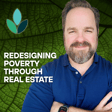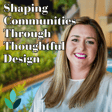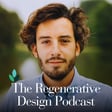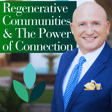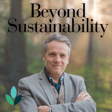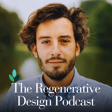
Ep. 12: Celine Vadam – Wellness in Hospitality Design
What if the spaces we inhabit could do more than just house us—what if they could heal us? Imagine walking into a hotel, not just to rest, but to rejuvenate—with every detail designed to enhance your well-being. Would you book a room in a place that promises to make you leave healthier and more fulfilled than when you arrived?
Many of us seek wellness, longevity, and a deeper connection to our surroundings. But what if there was a set of principles that could guide us toward a healthier, more balanced life, while also transforming how we interact with our environments?
We explore the intersection of hospitality, wellness, and sustainability, and how hotels are transforming into sanctuaries for the body, mind, and spirit. These spaces are not only enhancing the guest experience but also contributing to the well-being of local communities and the environment.
Celine Vadam is a public speaker, Founder and CEO of WE (i) think, a consulting firm specialized in the hospitality industry. She is a close friend and colleague of our previous guest, Sam Erik, and both members of the ‘Hospitality Thinktank’. She has worked with luxury brands like Four Seasons, serves as an expert at Blue Zones Retreat, and co-founded the Hospitality of the Future Think Tank. Céline brings a wealth of experience not only in hotel development but also in creating wellness experiences that impact both the guests and the environment. On top of that, she’s a health coach, yoga teacher, and breathwork facilitator.
LinkedIn: https://www.linkedin.com/in/celine-vadam/?originalSubdomain=pt
WE(i) think: https://wei-think.com/
Hospitality ThinkTank: https://hospitalitythinktank.com/
Explore these valuable resources to further your journey in regenerative design:
Discover more about Paulownia trees and their sustainable potential at https://www.paulownia-la.com/.
Dive into the Twelve Laws of Nature and unlock the secrets of harmonizing with our planet at https://www.12lawsofnature.com/.
Fulfill your garden aspirations with expert guidance from the Garden of Your Dreams masterclass at https://www.gardenofyourdreams.com/.
Ready to take actionable steps towards your dream garden? Book a complimentary 30-minute training session with Matthieu for immediate results: https://calendly.com/garden-of-your-dreams.
